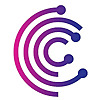ARTICLE AD BOX
UNESCO has expressed concerns about generative AI potentially distorting the history of the Holocaust if AI developers do not rigorously apply ethical standards.
In a report released Monday, UNESCO warned of bad actors’ potential misuse of generative AI.
Vulnerability of young people to misinformation
The report, published in partnership with the World Jewish Congress, emphasizes that young people are particularly vulnerable to receiving distorted information due to their extensive use of emerging technologies like AI. The report highlights that around 80% of individuals aged 10 to 24 use AI for various tasks, including school assignments. This high exposure increases their chances of encountering distorted information.
UNESCO Director-General Audrey Azoulay stated, “If we allow the horrific facts of the Holocaust to be diluted, distorted or falsified through the irresponsible use of AI, we risk the explosive spread of antisemitism and gradual diminution of our understanding about the causes and consequences of these atrocities.”
The report also notes that AI tends to oversimplify complex historical events, often privileging a narrow range of sources. For example, between 60% and 80% of AI-powered search engines’ top image results for the Holocaust show only one site, Auschwitz-Birkenau.
AI’s potential to perpetuate biases
The UNESCO report warns that AI can perpetuate existing biases, and the Holocaust is not exempt from this risk. According to UNESCO, disinformation about the Holocaust is already prevalent and may worsen with the use of generative AI.
Azoulay stressed the need to enforce ethical standards to protect young people from receiving distorted information. “Implementing UNESCO’s Recommendation on Ethics of AI is urgent so that younger generations grow up with facts, not fabrications,” said Azoulay.
The report highlights incidents where AI models like OpenAI’s ChatGPT and Google’s Bard, now called Gemini, have fabricated events related to the Holocaust. These models have “hallucinated” about the Holocaust, detailing fictitious events such as Nazi campaigns where Jews were drowned in rivers and lakes. Additionally, AI models have generated false quotes to support these distorted narratives.
Call for ethical AI standards
UNESCO’s report calls for immediate action to enforce ethical standards in AI development. It advocates for a multi-stakeholder approach to tackle the challenge, emphasizing the importance of applying the Recommendation on Ethics of AI, adopted by UNESCO member states in 2021.
UNESCO also urged tech companies to respect principles of fairness, transparency, human rights, and due diligence in their AI development processes. In February, eight tech firms signed a commitment to UNESCO’s Director-General, pledging to apply an ethical approach in developing their AI models.
The report stresses that AI’s ability to fabricate and distort historical events, such as the Holocaust, poses a significant risk. UNESCO emphasizes that generative AI could become a tool for spreading misinformation and perpetuating harmful biases without strict ethical guidelines and oversight.
UNESCO’s concern highlights the need for vigilance and responsibility in developing and deploying AI technologies. The organization’s call to action aims to ensure that the memory of the Holocaust and other historical events remains accurate and respected, safeguarding future generations from the dangers of misinformation.
The urgency of implementing ethical standards in AI development cannot be overstated. UNESCO’s Recommendation on the Ethics of AI provides a framework for ensuring that AI technologies are developed and used responsibly. This framework includes principles such as fairness, transparency, and respect for human rights, which are essential in preventing the spread of misinformation and disinformation.
UNESCO’s report reminds us of the critical role that ethical standards play in AI development. By adhering to these standards, developers can help prevent the distortion of historical events and protect the integrity of information accessed by young people and the general public.
The post UNESCO Concerned AI May Distort Holocaust Memory first appeared on Coinfea.
.png)
 4 months ago
2
4 months ago
2








 English (US)
English (US)